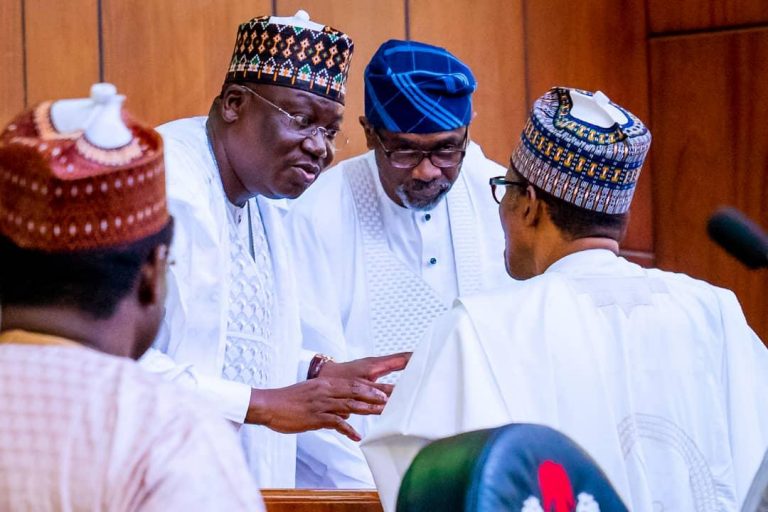The Chief Executive Officer of Mascot Consult Limited, Marcel Okeke, on Friday said the Coronavirus (COVID-19) is a blessing in disguise for the Nigerian economy, as the country can no longer afford to continue postponing its diversification from oil, given the turmoil in the global economy.
Okeke, a former Chief Economist of Zenith Bank Plc, who spoke during the Financial Correspondent Association of Nigeria (FICAN) Webinar Series Lecture titled: Nigeria Without Oil,” on May 1, a critical economic lesson of the COVID-19 pandemic “is that dependence on oil as the major earner has come to an end. And so, other items or revenue sources must be urgently explored and exploited.
“This points to an urgent restructuring of the economy of the country such that substantial revenue must come from either new or neglected sources,” he added.
He said that time has come for Nigeria to resort to its previously neglected sources of revenue like agriculture, taxation, and non-oil mineral exploration that the country is richly endowed and blessed with.
According to Okeke, who was also the founding Chairman of FICAN, called for greater emphasis on the Micro, Small and Medium-scale Enterprises to create and retain jobs.
He applauded the Central Bank of Nigeria (CBN), for its continued show of leadership in this area through its various stimulus packages for the MSMEs and the productive sectors of the economy
Nigeria, he continued, must begin to develop an alternative economy and end the debate on whether crude oil is a ‘curse or blessing’ to Nigeria, which has been raging on since the 1980s.
“The utilisation of our oil revenue has been our challenge for the economic development of the country. It can, therefore, be said that the Dutch disease and the paradox of resource curse have been with Nigeria for a long time. And now that we are where we are now, there is a need for a paradigm shift to having a country that does not depend on oil,” he said.
Okeke argued that reliance on oil is no longer sustainable for the Nigerian economy as the current slump in the oil market has negated all the projections in the 2020 budget to the extent that economic development would be a mirage and anything contrary would be a magic
“Since March 2020 there has been a glut of crude oil in the global market. Demand has been remarkably outstripped by supply. Indeed, it has been reported that several oil-laden cargoes and ships belonging to Nigeria and other oil-producing countries have been hovering in the sea for months without seeing anybody to buy them. This situation is likely to linger because economies that consume oil are in no situation to utilise oil due to the gravity of the impact of COVID-19 that has practically shutdown all productive and production activities.
“Let me give you a little idea about Nigeria. Oil production in Nigeria is now seriously endangered. The production cost of a barrel of crude oil in Nigeria is around $22 per barrel and now the price of the product is around $10 to $15 per barrel, it means that it is selling, that is if it is selling at all, below the production cost. If this continues, oil production companies would fold up, contract their activities, and leave the sector in job losses and lack of new investments. You know the implications for this country.
“So, for Nigeria that has solely depended on oil for its revenues, the reality is that oil revenues are no longer be forthcoming. Therefore the country has been sent back to the drawing board.”
Okeke recommended the pursuit of aggressive import substitution industrialisation strategy for the country, stressing that “so many of those things we have been importing all these years, we have to find a way to produce them locally so we can substitute those things. It would take some time, but that is the direction to go for a Nigeria without oil.”
He called for a reorientation of the populace towards the consumption of locally made goods, in line with import substitution efforts calling for “more emphasis should be laid on human capital development with the new emphasis on the digital economy, meaning that our education system should be restructured so that we can produce people for the needed direction of the economy.”
For him also, this is the time for more emphasis on infrastructure development, which “has been the challenge of the economy and it would be more so when we don’t have oil. Power infrastructure is needed or the entire economy to grow.
“There should be a greater focus on security and good governance. Today, there is a very high level of insecurity and our governance can be improved in several ways.
“There is an urgent need for fresh legislation to disentangle the three tiers of government from oil money sharing culture. In a situation where there is no oil, this culture of monthly sharing of oil proceeds has to disappear.
“The sharing of oil money is a constitutional provision and so there has to be a serious amendment of the Nigerian constitution to reflect a new economy that no longer depends on oil. Greater emphasis has to move to internally generated revenue by sub-national governments.
“When there is no monthly revenue to share, they would have to think outside the box on how the states can exist and to discharge its responsibilities. It is well known that many states owe their civil servants in the pasts and now you would imagine what would happen when federal allocation is no longer happening. So, this is a crucial time for new thinking.”
For Okeke, “this is urgent because what is before us is a hopeless situation and we would not know what would happen to oil next. And so, this is the time for us to change what needs to be changed so that our economy can move forward.”
Trending Today
Menu







